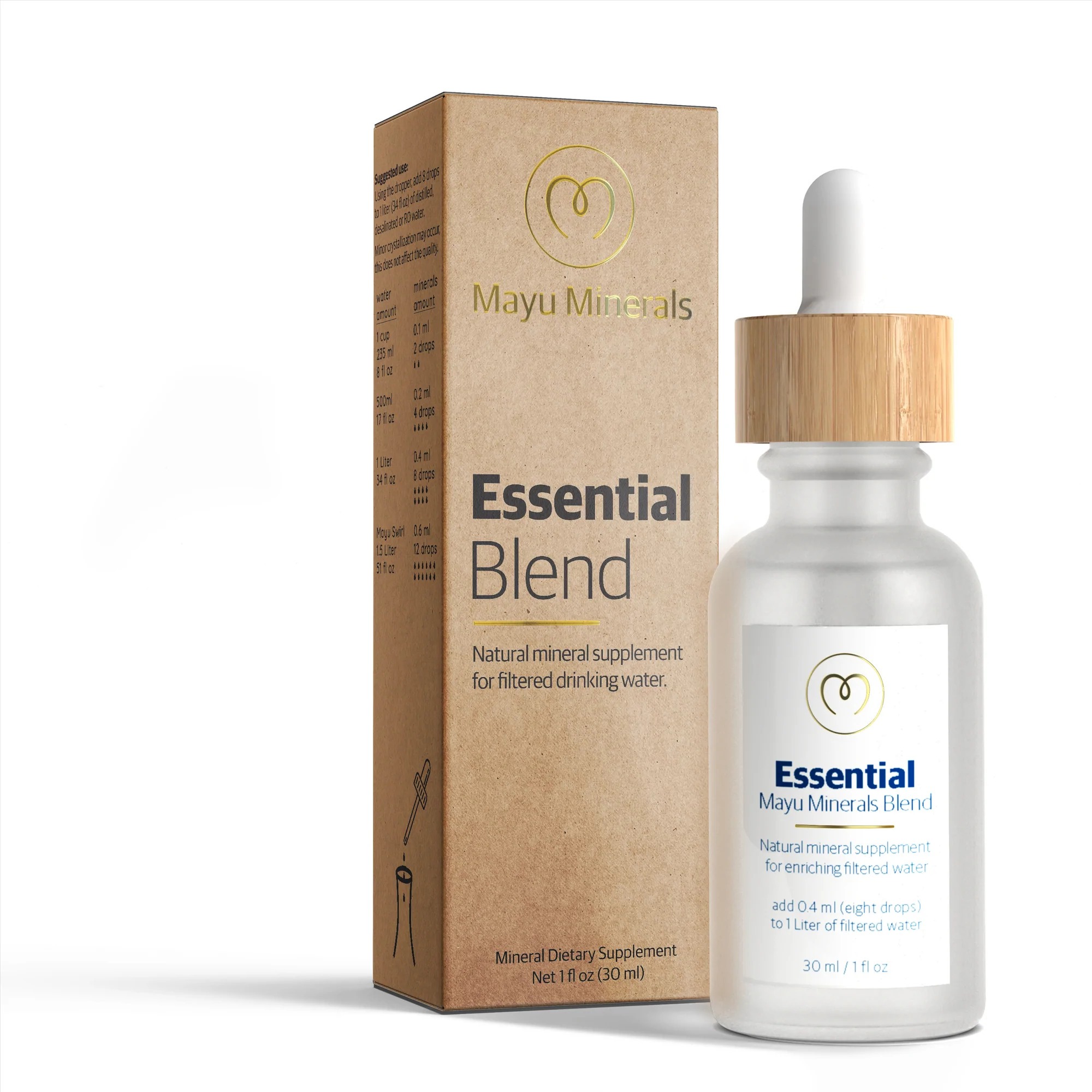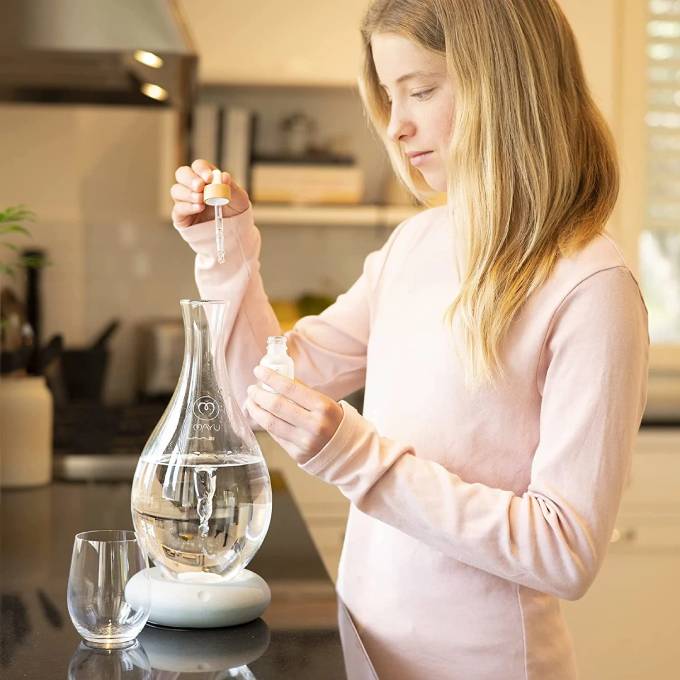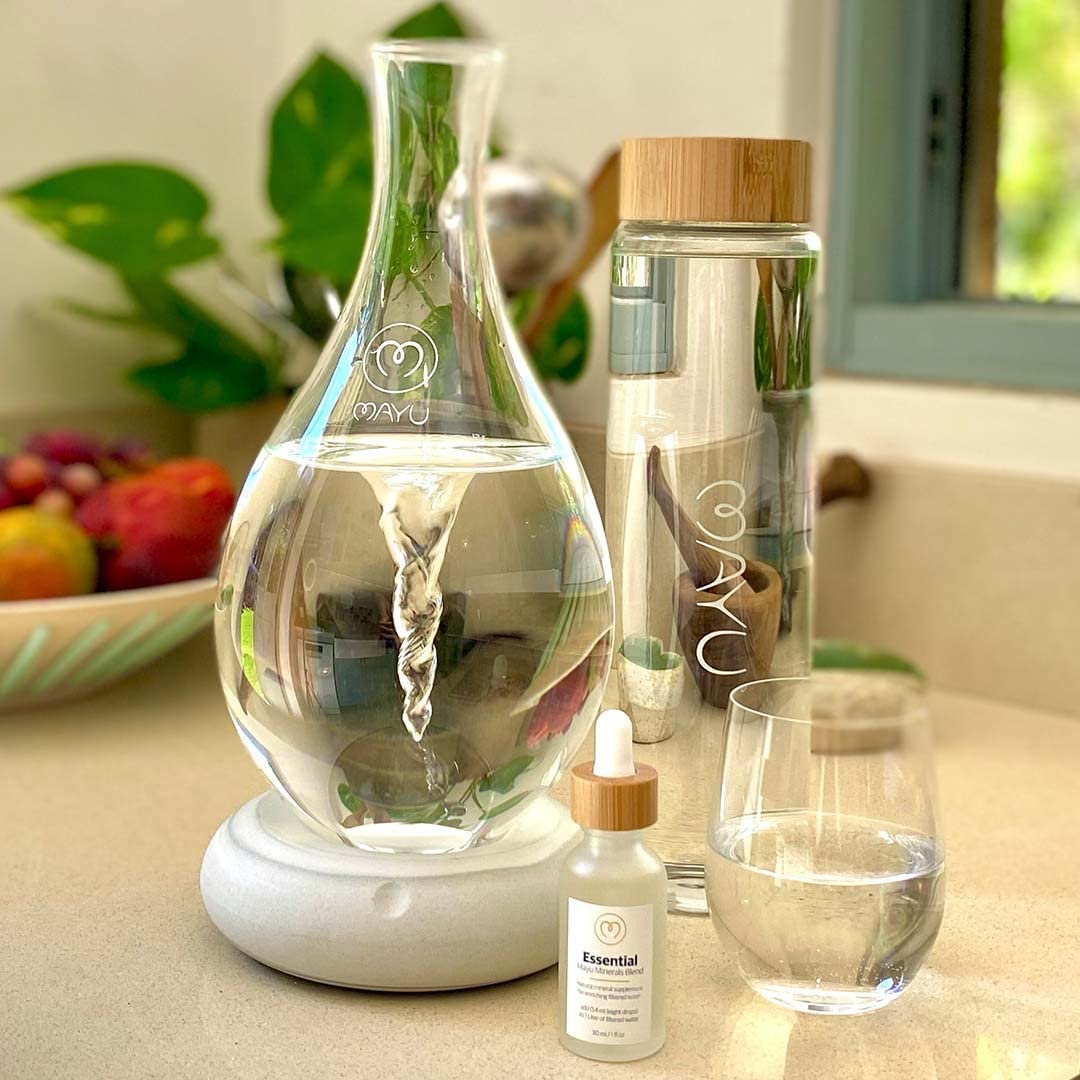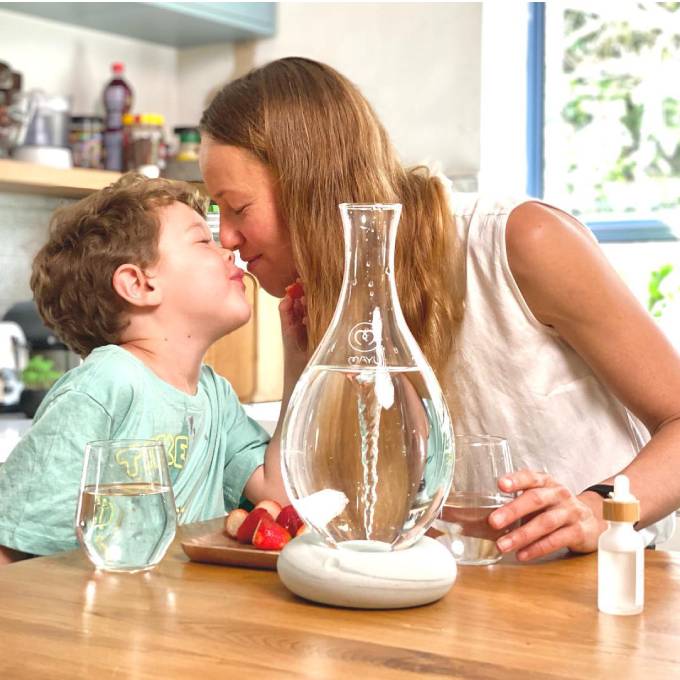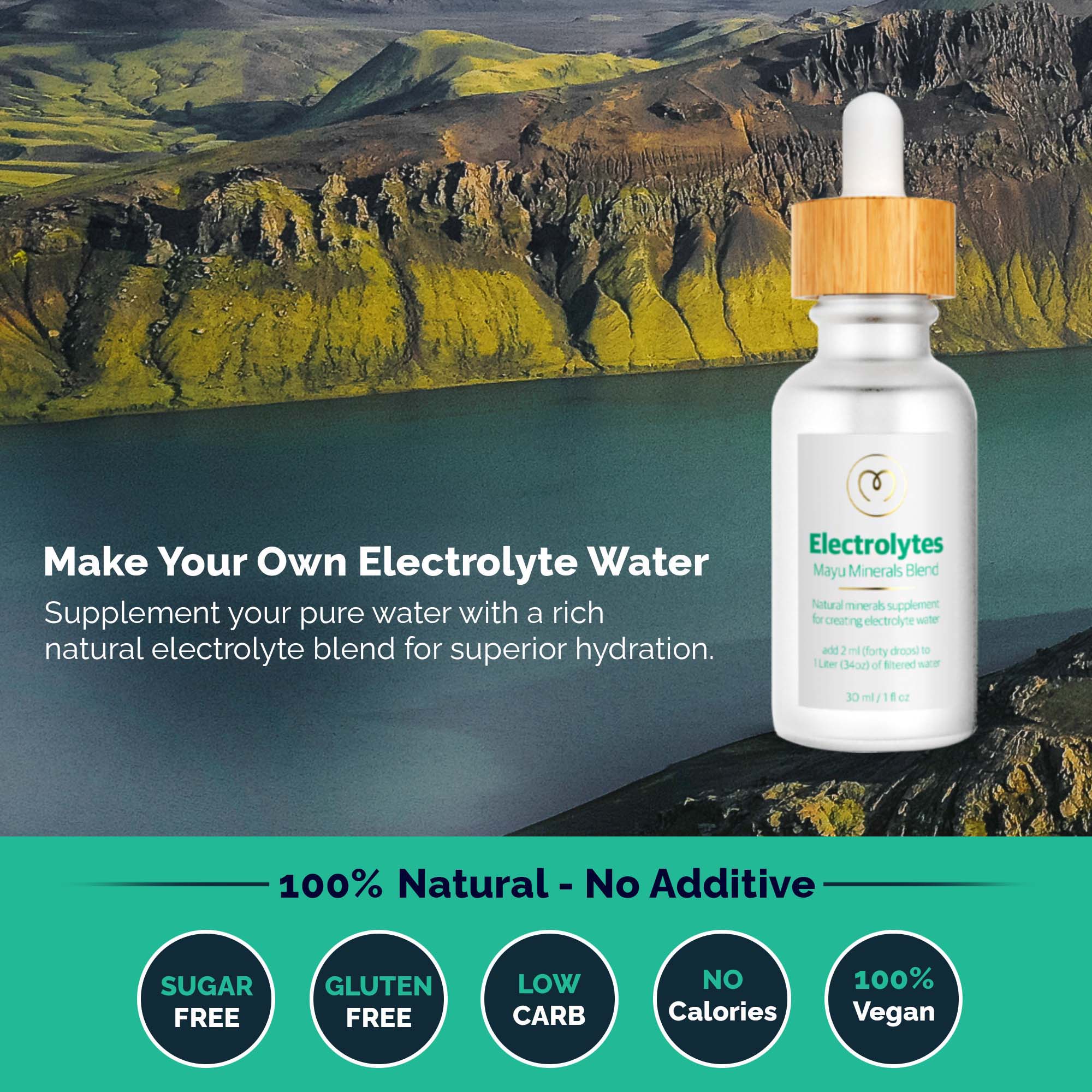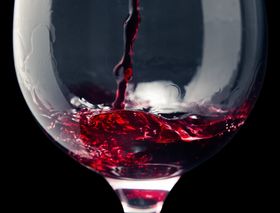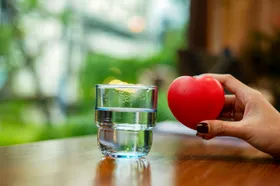How Hydration Supports Joint Health: The Synovial Secret
Snap, crackle, pop? Your joints aren’t breakfast cereal—they’re dehydrated. Find out how hydration rebuilds your body’s secret joint lube.
Published April 9, 2025

Do your joints feel stiff, achy, or creaky when you move? Joint discomfort can make everyday activities frustrating, whether you’re climbing stairs, hitting the gym, or simply bending to tie your shoes.
Every time you stand up, your knees protest with a dull throb. Your shoulders stiffen after hours at the desk, and your hips feel like they’re grinding with every step. You might pop painkillers, slather on creams, or shell out for expensive supplements, only to find temporary relief.
What if the key to soothing your joints isn’t buried in a pill bottle—but in your water bottle? Hydration isn’t just about quenching thirst; it’s the secret fuel that replenishes synovial fluid, restoring cushioning and reducing friction.
» Hydrate yourself using a blend of essential minerals
Why Hydration Is Crucial For Preventing Joint Pain
Proper water intake maintains joint health by supporting cartilage integrity, reducing inflammation, and ensuring optimal function of the protective mechanisms within our joints.
Osteoarthritis, one of the most common causes of joint pain, occurs when cartilage—the cushion between your joints—wears down. This protective tissue consists of approximately 80% water, making hydration status directly relevant to its function.
When dehydrated, cartilage loses its shock-absorbing capacity, leading to increased friction between bones and accelerated deterioration over time.
Additionally, inflammation—a key driver of joint pain in conditions like rheumatoid arthritis and gout—worsens with poor hydration. Water helps flush toxins and excess uric acid from the body, both of which can trigger inflammatory responses.
Without sufficient water, these substances accumulate, leading to swelling, redness, and painful joints.
» Check out the benefits of mineral water for arthritis and inflammation
Joint Structure and Hydration's Role
Water does more than just keep you refreshed—it plays a vital role in maintaining joint health from the inside out. Two key components of joint structure rely heavily on proper hydration: synovial fluid and cartilage.
Synovial Fluid: Your Joint's Natural Lubricant
This thick, gel-like fluid cushions your joints and reduces friction between bones during movement.
The synovial fluid consists primarily of water, along with hyaluronic acid and lubricin, which give it its slippery, protective qualities. When dehydrated, your body produces less synovial fluid, resulting in decreased lubrication, increased joint stiffness, and discomfort—particularly during physical activity.
Cartilage: The Shock Absorber
Cartilage covers the ends of your bones and contains specialized cells called chondrocytes embedded in a matrix that's approximately 80% water.
This matrix contains proteoglycans—protein-sugar compounds that act like sponges, trapping water to maintain cartilage's elasticity and shock-absorbing capacity.
Inadequate hydration disrupts this water balance, causing cartilage to become brittle and more susceptible to wear, ultimately accelerating joint degeneration.
The muscles and ligaments surrounding your joints also depend on proper hydration to maintain elasticity and function. Dehydrated soft tissues are prone to strain and fatigue, compromising joint stability and increasing pain.
» Discover how to stay hydrated in hot weather
Scientific Evidence on Dehydration and Joint Pain
Scientific studies have explored the relationship between dehydration and joint pain, highlighting several mechanisms through which inadequate hydration can affect joint health:
Reduced Synovial Fluid Viscosity
Synovial fluid lubricates joints, facilitating smooth movement. Its viscosity is largely determined by hyaluronic acid content. Dehydration can diminish hyaluronic acid levels, leading to decreased synovial fluid viscosity and increased joint friction.
A study published in Medscape Reference notes that in arthritis, synovial fluid viscosity decreases due to reduced production and polymerization of hyaluronic acid, resulting in less effective joint lubrication [1].
Compromised Cartilage Cushioning
Cartilage relies on water to maintain its structure and function as a cushion between bones. Dehydration reduces cartilage water content, impairing its ability to absorb shock and increasing susceptibility to damage.
Research in BMC Veterinary Research observed that synovial fluid glycosaminoglycans and lubricin increased significantly in joints, accompanied by a loss of hyaluronic acid, especially high molecular weight hyaluronic acid, leading to decreased synovial fluid viscosity [2].
Elevated Inflammatory Response
Even mild dehydration can elevate inflammatory markers associated with joint pain and swelling. A study in Biological Research for Nursing evaluated dehydration and markers of inflammation in agricultural workers, suggesting that dehydration may contribute to increased inflammatory responses [3].
While dehydration is not the sole factor in joint pain, maintaining proper hydration supports joint health by preserving synovial fluid viscosity, ensuring effective cartilage cushioning, and potentially mitigating inflammation.
» Find out how hydration improves your heart health
Weight-Bearing Joints and Hydration
Mild but chronic dehydration tends to most severely affect weight-bearing joints, particularly the knees, hips, and spine. These joints endure constant pressure from everyday activities like walking, standing, and lifting, making them especially vulnerable when the body lacks adequate hydration.
Knees: First to Feel the Strain
When dehydrated, your body produces less synovial fluid, reducing lubrication in the knee joints.
This leads to increased friction between bones, accelerated cartilage wear, and that familiar sensation of stiffness and discomfort. Several studies have linked cartilage dehydration to accelerated osteoarthritis progression, especially in the knees—among the most commonly affected joints.
Hips & Spine: Hydration Supports Shock Absorption
Your hips and spine rely on well-hydrated cartilage and intervertebral discs to absorb impact and maintain proper alignment. Without sufficient water, these discs can shrink and lose flexibility, increasing the risk of misalignment, joint stress, and chronic pain.
Most existing research is observational or based on animal models. While findings suggest a connection between hydration and joint health, there are no long-term human clinical trials that isolate hydration as a variable. That's why there are no definitive cause-and-effect conclusions.
» Check out the best types of water that hydrate your cells
Morning Stiffness and Overnight Dehydration
Many people experience joint stiffness upon waking, a phenomenon often attributed to overnight dehydration. During sleep, the body goes 6-8 hours without fluid intake, which can affect joint function in several ways:
1. Reduced Synovial Fluid Lubrication
Joints rely on synovial fluid to minimize friction during movement. Overnight dehydration decreases synovial fluid production and increases its viscosity, causing it to thicken into a gel-like consistency often called "morning gel."
This thickened fluid provides less cushioning, resulting in stiffness and discomfort upon waking. Movement helps redistribute and thin the fluid, gradually alleviating stiffness.
2. Cartilage Compression
Joint cartilage requires adequate hydration to maintain its shock-absorbing properties. Overnight dehydration and prolonged joint inactivity can temporarily reduce cartilage thickness and elasticity, contributing to that characteristic morning stiffness.
3. Electrolyte Imbalances
Dehydration disrupts electrolytes like sodium, potassium, and magnesium, which regulate muscle and nerve function.
Low electrolyte levels can cause muscle cramps and tension, increasing strain on joints and exacerbating stiffness. Dehydrated muscles surrounding joints may tighten overnight, limiting mobility.
5 Hydration Strategies for Joint Health
Effective hydration practices can significantly support joint function and reduce discomfort.
Here are five evidence-based strategies:
1. Maintain Consistent Daily Water Intake
Aim for 8-10 cups (2-2.5L) of water daily, adjusting for activity level, climate, and body size. Proper hydration maintains synovial fluid viscosity and cartilage resilience, reducing joint friction and stiffness [4].
2. Drink Electrolyte-Rich Fluids
Electrolytes like sodium, potassium, and magnesium help retain water in cells, supporting cartilage hydration.
Balanced electrolytes prevent fluid loss in joints, improving mobility [5]. Coconut water and electrolyte-enhanced drinks can be beneficial additions to your hydration routine.
3. Optimize Water Timing
Drink water before, during, and after exercise to replace lost fluids and prevent cartilage dehydration. One study showed that dehydration worsens joint wear in athletes, increasing stiffness and pain after activity [6].
» Check out the best electrolytes for athletes
4. Incorporate Hydrating, Anti-Inflammatory Foods
Fruits and vegetables such as cucumbers, watermelon, and leafy greens provide water, vitamins, and antioxidants that help reduce joint inflammation. Studies in Frontiers in Nutrition have found that diets rich in omega-3s and polyphenols improve cartilage health and hydration status.
5. Limit Diuretics That Deplete Joint Hydration
Excessive caffeine and alcohol consumption increase urine output, potentially dehydrating cartilage. To maintain optimal joint lubrication, limit these beverages while increasing water intake.
» Better than coffee: Find out how electrolytes fight fatigue
Customized Approaches for Different Conditions & Demographics
Different joint conditions require tailored hydration approaches to address their specific mechanisms and symptoms:
Osteoarthritis (OA)
For individuals with osteoarthritis, the primary focus should be maintaining cartilage hydration and reducing joint stiffness. Consider including:
- Drinks rich in vitamin C to support collagen production
- Bone broth containing glucosamine and chondroitin
- Electrolyte-rich beverages to enhance cartilage hydration
- Warm water or herbal teas with turmeric or ginger to alleviate mild inflammation
» Discover the differences between vitamins and minerals
Rheumatoid Arthritis (RA)
Those managing rheumatoid arthritis should prioritize reducing inflammation and supporting immune function:
- Anti-inflammatory herbal teas like green tea or chamomile
- Hydrating foods rich in omega-3 fatty acids (chia seeds, flaxseeds)
- Alkaline water to help reduce systemic inflammation
- Avoidance of processed or sugary beverages that might aggravate inflammation
Gout
Gout requires strategies aimed at flushing excess uric acid to prevent painful flare-ups:
- Alkaline water (like lemon-infused water) to neutralize acidity
- Increased intake of at least 3 liters daily to dilute uric acid levels
- Reduced consumption of alcohol and sugary drinks that exacerbate uric acid buildup
- Tart cherry juice, which provides hydration and has natural anti-inflammatory properties
Elderly Individuals
Older adults face unique hydration challenges due to diminished thirst:
- Small, frequent sips throughout the day rather than large volumes at once
- Hydration-rich foods like soups, smoothies, and juicy fruits
- Monitored electrolyte levels, especially for those taking medications like diuretics
- Visual reminders to drink water regularly
» Check out the best electrolytes for seniors for optimal hydration
Athletes & Active Individuals
Those engaged in regular physical activity need specialized hydration strategies:
- Electrolyte-enhanced fluids to restore joint lubrication after exercise
- 30-50% increased hydration during periods of intense activity
- Collagen peptides or amino acids added to post-workout drinks to support cartilage recovery
- Consistent hydration monitoring before, during, and after workouts
» Find out why you need to drink water while working out
Water Minerals and Joint Health
Hydration quality matters as much as quantity. Mineral-rich water can provide additional benefits for joint health through several key nutrients:
Calcium: Foundation for Joint Strength
Essential for bone density and cartilage integrity, calcium deficiency is linked to weakened joint structures and increased risk of osteoarthritis, according to research published in Osteoarthritis and Cartilage.
Magnesium: Promoting Flexibility and Pain Relief
Magnesium regulates muscle relaxation, nerve function, and inflammation. A 2020 review in Frontiers in Nutrition suggests that magnesium-rich water may improve mobility and reduce pain symptoms, particularly in those with chronic joint issues.
Bicarbonates: Natural pH Balancers
Some spring and alkaline waters contain bicarbonates, which help neutralize acid buildup in the body. This is especially beneficial for gout management, as it lowers uric acid levels and reduces inflammation during flare-ups.
» Learn to increase your water pH safely
Sodium & Potassium: Supporting Fluid Balance
These electrolytes maintain optimal fluid balance in and around joints, particularly in synovial fluid. Adequate levels support better hydration within the joint capsule, enhancing smooth movement and reducing friction.
» Discover if sodium in bottled water is bad for you health
5 Hydration Mistakes That Hurt Your Joints
- Insufficient Water Intake: Not drinking enough water reduces synovial fluid, increasing joint stiffness and cartilage wear. Aim for consistent hydration throughout the day.
- Electrolyte Imbalance: Both overhydration and dehydration can disrupt electrolyte balance. To prevent this, increase water intake and include foods rich in potassium, magnesium, and sodium.
- Relying on Sugary or Caffeinated Beverages: These can increase inflammation and promote dehydration. Choose water, herbal teas, or naturally flavored water instead.
- Overlooking Hydrating Foods: Many people focus solely on liquid intake while neglecting water-rich foods. For additional hydration, eat cucumbers, watermelon, celery, and leafy greens.
- Overhydrating: Excessive water consumption can negatively impact joints by diluting essential electrolytes like sodium and potassium, which are crucial for muscle and nerve function. This imbalance may cause muscle cramps, joint stiffness, and swelling.
» Find out if milk really is more hydrating than water
Hydration: The Silent Fix for Joint Pain
While hydration alone won't cure chronic joint conditions, maintaining optimal fluid balance represents a simple yet effective strategy for supporting joint health.
By understanding how water interacts with joint structures and implementing appropriate hydration practices, you can potentially reduce discomfort, improve mobility, and preserve joint function over time.
Remember that consistent hydration habits, rather than occasional efforts, yield the greatest benefits for long-term joint health.
» Primer your hydration and support your joints using electrolyte drops
References:
- A. G. S. P. Faac Nrcc-Cc, “Joint fluid interpretation: Joint fluid interpretation.” Available: https://emedicine.medscape.com/article/2172238-overview
- M. C. Houser et al., “Inflammation-Related factors identified as biomarkers of dehydration and subsequent acute kidney injury in agricultural workers,” Biological Research for Nursing, vol. 23, no. 4, pp. 676–688, May 2021, doi: 10.1177/10998004211016070. Available: https://pmc.ncbi.nlm.nih.gov/articles/PMC8726423/
- A. Watkins et al., “Investigation of synovial fluid lubricants and inflammatory cytokines in the horse: a comparison of recombinant equine interleukin 1 beta-induced synovitis and joint lavage models,” BMC Veterinary Research, vol. 17, no. 1, May 2021, doi: 10.1186/s12917-021-02873-2. Available: https://doi.org/10.1186/s12917-021-02873-2
- A. C. Moore, J. L. Schrader, J. J. Ulvila, and D. L. Burris, “A review of methods to study hydration effects on cartilage friction,” Tribology - Materials Surfaces & Interfaces, vol. 11, no. 4, pp. 202–214, Oct. 2017, doi: 10.1080/17515831.2017.1397329. Available: https://doi.org/10.1080/17515831.2017.1397329
- L. E. Armstrong, “Rehydration during Endurance Exercise: Challenges, Research, Options, Methods,” Nutrients, vol. 13, no. 3, p. 887, Mar. 2021, doi: 10.3390/nu13030887. Available: https://pmc.ncbi.nlm.nih.gov/articles/PMC8001428/
- R. J. Maughan and S. M. Shirreffs, “Dehydration and rehydration in competative sport,” Scandinavian Journal of Medicine and Science in Sports, vol. 20, no. s3, pp. 40–47, Oct. 2010, doi: 10.1111/j.1600-0838.2010.01207.x. Available: https://pubmed.ncbi.nlm.nih.gov/21029189/
Disclaimer: The information published by Mayu Water is not a substitute for the expert knowledge, advice, and recommendations of trained professionals. We strongly recommend consulting with industry experts and primary or scientific sources before making any health, research-related, or other important decisions.




































